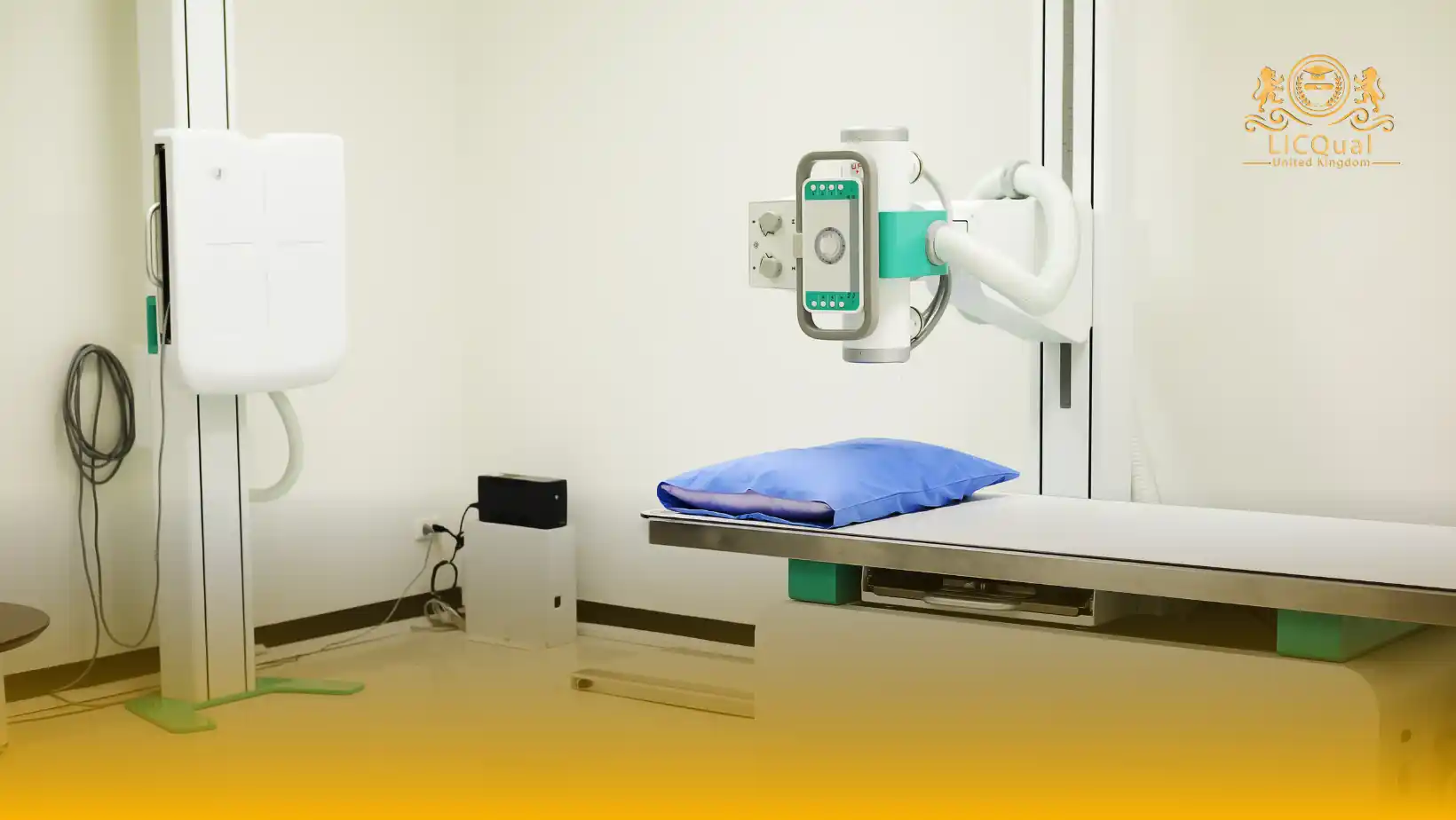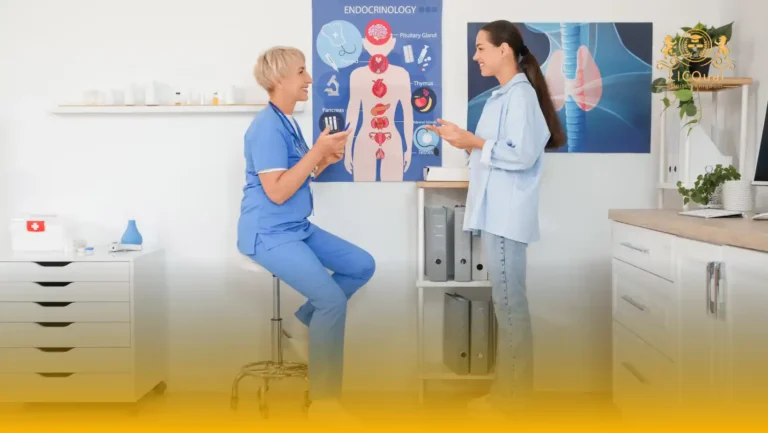The LICQual Level 6 Diploma in Nuclear Medicine (Dip NM) is a specialised qualification designed for professionals seeking to advance their expertise in the application of nuclear science within medical diagnostics and treatment. This diploma provides an in-depth understanding of nuclear medicine principles, imaging technologies, radiopharmaceuticals, and clinical applications, equipping learners with the advanced knowledge and skills required to contribute effectively to patient care and healthcare innovation.
Unlike entry-level qualifications, this programme is not designed for fresh candidates. It is tailored for experienced healthcare professionals, medical practitioners, radiographers, and related specialists who wish to enhance their career prospects, broaden their professional scope, and strengthen their Continuing Professional Development (CPD). By completing this qualification, learners will gain the ability to critically analyse nuclear medicine procedures, apply advanced techniques in medical imaging, and integrate evidence-based practices to improve clinical outcomes.
Centres delivering the LICQual Level 6 Diploma in Nuclear Medicine must demonstrate high standards of quality by employing qualified and experienced staff with subject expertise, and ensuring access to the latest learning resources, research materials, and appropriate facilities. Adequate training infrastructure, up-to-date medical imaging technologies, and learner support services are essential to ensure the delivery of high-quality education and training.
This diploma opens pathways for learners to progress in advanced clinical practice, healthcare leadership, or further study at higher academic levels, making it a valuable investment for professionals aiming to specialise in nuclear medicine and contribute to the future of medical science.
Course Overview
Qualification Title
LICQual Level 6 Diploma in Nuclear Medicine (Dip NM)
Total Units
6
Total Credits
120
GLH
480
Qualification #
LICQ2200937
Qualification Specification
To enroll in the LICQual Level 6 Diploma in Nuclear Medicine (Dip NM), applicants must meet the following criteria:
|
Qualification# |
Unit Title |
Credits |
GLH |
|---|---|---|---|
|
LICQ2200937-1 |
Principles and Fundamentals of Nuclear Medicine |
20 |
80 |
|
LICQ2200937-2 |
Radiopharmaceuticals and Radiochemistry |
20 |
80 |
|
LICQ2200937-3 |
Nuclear Medicine Imaging Techniques and Instrumentation |
20 |
80 |
|
LICQ2200937-4 |
Radiation Safety, Protection, and Quality Control |
20 |
80 |
|
LICQ2200937-5 |
Clinical Applications of Nuclear Medicine in Diagnosis and Therapy |
20 |
80 |
|
LICQ2200937-6 |
Research Methods and Evidence-Based Practice in Nuclear Medicine |
20 |
80 |
By the end of this course, learners will be able to:
Unit 1: Principles and Fundamentals of Nuclear Medicine
By the end of this unit, learners will be able to:
- Critically evaluate the principles of atomic and nuclear physics relevant to nuclear medicine.
- Analyse the biological effects of radiation and its interaction with human tissue.
- Demonstrate understanding of radionuclide behaviour, biodistribution, and decay principles.
- Apply knowledge of nuclear medicine fundamentals to clinical and diagnostic practice.
Unit 2: Radiopharmaceuticals and Radiochemistry
By the end of this unit, learners will be able to:
- Assess the production methods, preparation, and quality control of radiopharmaceuticals.
- Critically evaluate the chemical, physical, and biological characteristics of commonly used radiotracers.
- Apply international regulatory and ethical frameworks in the handling of radiopharmaceuticals.
- Demonstrate safe and effective practices in radiochemistry laboratories.
Unit 3: Nuclear Medicine Imaging Techniques and Instrumentation
By the end of this unit, learners will be able to:
- Critically analyse the principles and applications of gamma cameras, SPECT, PET, and hybrid imaging systems.
- Evaluate image acquisition parameters, processing techniques, and artefact reduction strategies.
- Demonstrate ability to optimise imaging protocols for diagnostic accuracy and patient safety.
- Apply advanced knowledge to interpret and assess imaging outcomes effectively.
Unit 4: Radiation Safety, Protection, and Quality Control
By the end of this unit, learners will be able to:
- Apply international standards for radiation protection in nuclear medicine practice.
- Critically evaluate radiation dose management for patients, staff, and the environment.
- Demonstrate competence in implementing quality control procedures for imaging equipment and radiopharmaceuticals.
- Analyse ethical and legal aspects of radiation safety in clinical practice.
Unit 5: Clinical Applications of Nuclear Medicine in Diagnosis and Therapy
By the end of this unit, learners will be able to:
- Critically analyse the diagnostic applications of nuclear medicine across oncology, cardiology, neurology, and endocrinology.
- Demonstrate understanding of therapeutic applications, including radioiodine therapy and targeted radionuclide therapy.
- Evaluate patient preparation, management, and follow-up in diagnostic and therapeutic nuclear medicine procedures.
- Apply evidence-based approaches to improve clinical outcomes and patient safety.
Unit 6: Research Methods and Evidence-Based Practice in Nuclear Medicine
By the end of this unit, learners will be able to:
- Design and implement research projects using appropriate methodologies in nuclear medicine.
- Critically appraise scientific literature and research findings in nuclear medicine.
- Apply statistical analysis and data interpretation to support clinical decision-making.
- Demonstrate the ability to integrate research evidence into practice to enhance patient care and innovation.
The LICQual Level 6 Diploma in Nuclear Medicine (Dip NM) is designed for healthcare professionals, medical practitioners, radiographers, and specialists who want to advance their skills in diagnostic imaging, molecular medicine, and nuclear medicine procedures. This course is ideal for individuals seeking a UK-accredited Nuclear Medicine qualification, aiming to enhance clinical expertise, and pursue career growth in hospitals, imaging centers, and research institutions.
1. Medical Doctors and Practitioners
- Enhance expertise in nuclear imaging diagnostics and patient care.
- Gain advanced knowledge in PET, SPECT, and CT imaging techniques.
- Learn evidence-based approaches for accurate diagnosis.
- Strengthen clinical decision-making in nuclear medicine.
- Earn a UK-accredited Level 6 Nuclear Medicine qualification.
2. Nuclear Medicine Specialists and Consultants
- Deepen understanding of complex radiopharmaceutical applications.
- Stay updated with the latest diagnostic imaging advancements.
- Improve patient outcomes through specialized nuclear medicine care.
- Build credibility as an expert in diagnostic and molecular imaging.
- Access strategies for handling complex imaging cases safely.
3. Radiographers and Healthcare Professionals
- Develop practical skills for PET, SPECT, and CT imaging procedures.
- Learn to manage radiopharmaceuticals safely and effectively.
- Improve patient communication and guidance during imaging procedures.
- Enhance professional credibility in hospitals and diagnostic centers.
- Advance your career in imaging, radiology, and nuclear medicine departments.
4. Medical Graduates and Students
- Gain foundational knowledge in nuclear medicine and molecular imaging.
- Prepare for specialist roles or postgraduate medical studies.
- Learn modern diagnostic and imaging techniques for clinical practice.
- Obtain a globally recognized UK-accredited diploma.
- Improve employability in hospitals, research centers, and specialty clinics.
5. Healthcare Administrators and Managers
- Understand operational challenges in nuclear medicine departments.
- Learn to optimize workflow and patient care processes.
- Apply evidence-based strategies for managing imaging services.
- Enhance decision-making in clinical and administrative roles.
- Ensure compliance with safety, legal, and ethical regulations.
6. International Healthcare Professionals
- Study globally recognized Nuclear Medicine modules online.
- Expand career opportunities in diagnostic imaging worldwide.
- Learn from a UK-accredited curriculum designed for international standards.
- Bridge knowledge gaps in advanced imaging and molecular medicine.
- Network with professionals across the global nuclear medicine community.
7. Research Scholars and Educators
- Advance research in nuclear medicine and molecular imaging.
- Explore latest clinical innovations and evidence-based practices.
- Gain credibility for teaching or academic roles in imaging and diagnostics.
- Develop skills to conduct studies in PET, SPECT, and CT applications.
- Strengthen academic and professional profiles with a recognized diploma.
To ensure the highest quality of training and learner success, centres delivering the LICQual Level 6 Diploma in Nuclear Medicine (Dip NM) must meet the following requirements. These standards are designed to guarantee that learners receive professional, well-structured, and internationally recognised training in nuclear medicine.
Staffing and Faculty Requirements
- Centres must have qualified and experienced teaching staff with expertise in nuclear medicine, diagnostic imaging, and related medical sciences.
- Trainers and assessors should hold relevant academic and professional qualifications at or above Level 6 in the field of medicine, radiology, or clinical sciences.
- Staff should demonstrate current clinical practice knowledge and commitment to Continuing Professional Development (CPD).
Facilities and Learning Resources
- Centres must provide suitable classrooms, laboratories, or simulation facilities for theoretical and practical learning.
- Access to specialised resources such as nuclear medicine imaging systems, radiopharmaceutical references, and radiation safety guidelines.
- Up-to-date digital learning platforms and libraries to support research and independent study.
Quality Assurance and Assessment
- Clear assessment policies and procedures to evaluate learners’ knowledge and practical skills.
- Regular internal and external quality assurance checks to maintain international academic standards.
- Secure systems to manage learner progress, feedback, and certification records.
Learner Support
- Centres must provide academic guidance, pastoral support, and career counselling.
- Ensure learners have access to study materials, case studies, and evidence-based practice resources.
- A commitment to inclusive learning, ensuring equal opportunities for all learners.
By meeting these requirements, centres will uphold the integrity, credibility, and global recognition of the LICQual Level 6 Diploma in Nuclear Medicine, equipping learners with the advanced knowledge and skills needed for professional excellence.
Assessment and Verification
All units within this qualification are subject to internal assessment by the approved centre and external verification by LICQual. The qualification follows a criterion-referenced assessment approach, ensuring that learners meet all specified learning outcomes.
To achieve a ‘Pass’ in any unit, learners must provide valid, sufficient, and authentic evidence demonstrating their attainment of all learning outcomes and compliance with the prescribed assessment criteria. The Assessor is responsible for evaluating the evidence and determining whether the learner has successfully met the required standards.
Assessors must maintain a clear and comprehensive audit trail, documenting the basis for their assessment decisions to ensure transparency, consistency, and compliance with quality assurance requirements.







